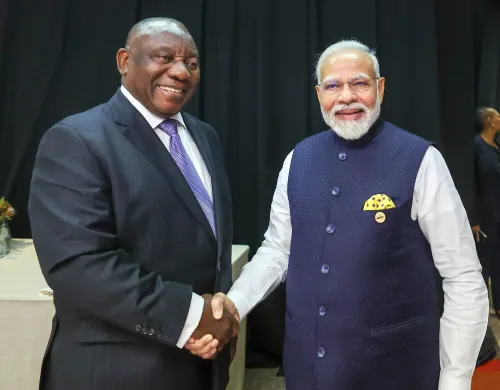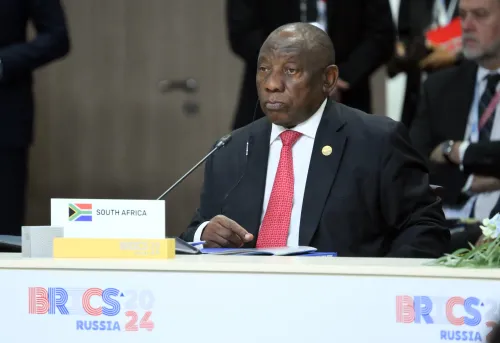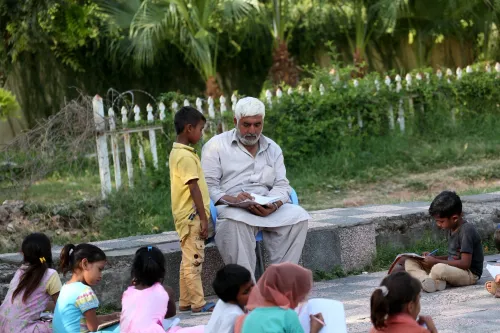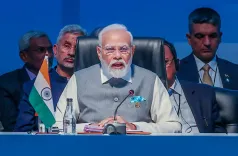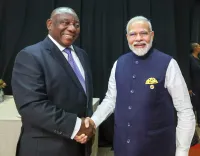What Were the Highlights of the UN General Assembly's General Debate?
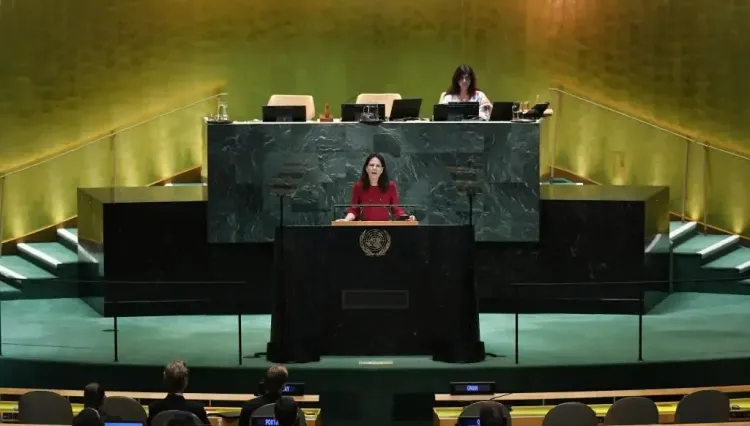
Synopsis
Key Takeaways
- 189 member states participated in the General Debate.
- The debate highlighted urgent global challenges.
- Several nations recognized Palestine's statehood.
- Significant protests occurred during speeches, notably against Netanyahu.
- The impact of US visa policies was a focal point of discussion.
United Nations, Sep 30 (NationPress) The General Debate of the 80th session of the UN General Assembly wrapped up on Monday.
In her closing statements, General Assembly President Annalena Baerbock noted that 189 UN member states participated in the General Debate, with speeches delivered by 124 heads of state and government.
"At the start of this week, we described the United Nations as a hub of diplomacy and dialogue, standing at a critical juncture, where we come together to engage in tough discussions during tumultuous times," she remarked. "If this high-level week serves as any indication, this hub is fulfilling its role: the United Nations remains significant."
Throughout the week, there were electrifying moments when member states felt a shared commitment to improve, to aspire towards more, and to choose the right direction at the crossroads, she added.
"This week's General Debate, marked by strong engagements and passionate speeches, demonstrated our capacity to elevate our collective leadership, discover shared solutions, and navigate the crossroads effectively," she stated. "Let us draw inspiration from our historical legacy and dare to envision a brighter future, united and undaunted."
This year’s session coincides with the 80th anniversary of the United Nations' establishment. The High-level Week offered world leaders a platform to reflect on the past eight decades and consider future challenges, according to Xinhua news agency.
Ongoing conflicts in various regions, great power tensions, climate emergencies, and a lack of sustainable development presented ample topics for discussion.
Beyond the General Debate, world leaders participated in numerous high-level meetings, including the resumed High-level International Conference concerning the Peaceful Settlement of the Question of Palestine and the Implementation of the Two-State Solution, as well as a high-level event celebrating the UN's 80th anniversary.
Several nations, such as France, the UK, Canada, and Australia, declared their recognition of Palestine's statehood just before or during the High-level Week, leading to increased isolation for Israel and the United States on the Palestinian issue.
Additional events included a climate summit, a Sustainable Development Goals Moment, a high-level meeting commemorating the 30th anniversary of the Fourth World Conference on Women, and a discussion on governance in artificial intelligence.
In a contentious moment, US President Donald Trump criticized the UN during his speech at the UNGA, mentioning technical issues with the teleprompter and an escalator malfunction.
An apology was issued by Fox News host Jesse Watters after he made threatening remarks regarding the UN on his show, suggesting extreme actions in response to the issues Trump faced.
During Netanyahu's speech on Friday, a significant number of delegates exited the General Assembly Hall in protest.
This year’s High-level Week also highlighted the manipulation of visa processes by the United States, which misused its position as the host country.
Palestinian President Mahmoud Abbas was unable to attend in person due to a US-imposed visa ban on Palestinian officials, subsequently delivering his address remotely.
Colombian President Gustavo Petro had his visa revoked after attending a pro-Palestinian demonstration outside UN headquarters, leading him to question New York's suitability as the UN's host city.

